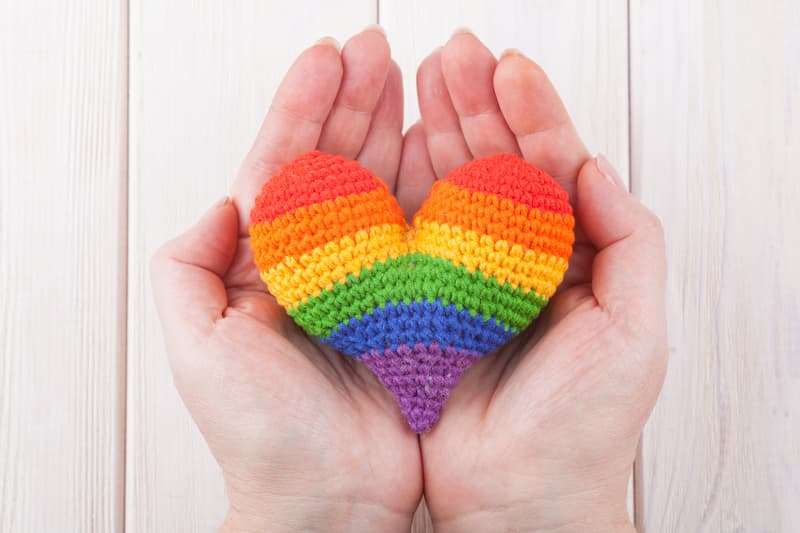
Celebrating Pride Month
June marks the month of Pride, a movement of celebration and solidarity for the LGBTQ+ community. Commemorating the Stonewall uprising of June 1969 [1], Pride Month is a time for parades, marches, activities and activism, in which people from all walks of life come together in support of LGBTQ+ rights.
Unfortunately, due to lockdown, Pride parades and gatherings across the world have been put on hold. Many are still coming together to celebrate their community via video calls with friends or through activities at home, and LGBTQ+ voices have taken to protest in support of #BlackLivesMatter, recognising the continued and vital importance of LGBTQ+ people of colour in fighting against injustice.
With a public health crisis such as the pandemic affecting the celebration of Pride, the topic of LGBTQ+ access to healthcare seems particularly pressing. For those outside of the LGBTQ+ community, it could be easy to assume that sexuality or gender identity have no impact on the navigation of healthcare systems or access to treatment, but sadly this is not always the case.
Healthcare For All?
We believe everyone has the right to access healthcare, and to receive equal treatment from medical professionals regardless of their sexual orientation or gender identity. However, many LGBTQ+ people have had direct experiences of discrimination when accessing healthcare or receiving treatment.
1 in 8 LGBTQ+ people have experienced unequal treatment from healthcare staff due to their identity, with a third of trans people being discriminated against, many citing recent and ongoing incidents. Similar figures apply to inappropriate curiosity from medical staff, with a quarter of LGBTQ+ and nearly half of trans and non-binary people experiencing uncomfortable treatment such as discriminatory questioning, prejudiced comments, and non-consensual outing [2].
Questions about sexual orientation and gender identity can be helpful for LGBTQ+ patients [3] and can allow medical professionals to tailor more specific care for individuals. However, questions and discussions surrounding a patient’s sexual orientation or gender identity should always be appropriate and relevant to their care. Unfortunately, LGBTQ+ people report that healthcare staff can make intrusive comments that have no relevance to their treatment or reason for seeking help.
Avoiding Treatment
When LGBTQ+ people find it difficult to access healthcare or experience discrimination from healthcare staff, it can cause anxiety when seeking medical help and even discourage them from getting treatment in the future.
Around 40% of trans people have struggled to gain access to healthcare due to their gender identity, with around 1 in 6 having been refused care entirely at least once [4]. For LGBTQ+ people, experiences such as these can cause avoidance of treatment, particularly amongst the younger demographic (18-24) with up to a third not seeking medical help due to fear of prejudicial behaviour [5].
Many GPs don’t find themselves adequately equipped to treat gender identity and gender dysphoria issues, with many trans people being placed on an average 18 month waiting lists for specialist referral [6]. In some cases, trans people feel the need to medicate themselves due to the lack of directed care, without medical supervision to assist them. In addition to lack of treatment, discrimination can lead to trans people delaying care [7].
Of course, not seeking professional help for medical issues can be seriously harmful, so it’s vital that discriminatory attitudes are addressed within healthcare institutions for the safety of LGBTQ+ people.
Building Better Care
With LGBTQ+ communities at higher risk of experiencing common mental health issues such as depression, anxiety, and self-harm, it’s particularly important that we act now to make healthcare accessible to everyone, raising awareness and making essential changes in order to stop discriminatory practices and guarantee the equal treatment of patients regardless of sexual orientation or gender identity.
Recommendations include national awareness campaigns within healthcare services, improved equality and diversity training for staff, and developing Monitoring Information Standards for sexual orientation and gender identity in order to better provide care for those in need.

We’re Listening
At e-Surgery, we recognise the difficulties that many LGBTQ+ people have faced, and continue to face, in getting the healthcare they need.
We’ve prepared a quick survey (now closed) about LGBTQ+ access to online healthcare. We’d love to hear from you regarding your experiences accessing healthcare and what could be done better. We feel it’s important that we directly listen to the LGBTQ+ community in order to create a more inclusive and accessible healthcare service.
We recognise we can do more, and we’re looking to implement changes based on the feedback given. In combination with LGBTQ+ awareness training for our staff, we hope the results of this survey can help e-Surgery care for you.
We hope you have a safe and happy Pride Month 2020!
Sources
1.The Stonewall Uprising | Stonewall
2, 4, 5. LGBT in Britain – Health (2018) PDF | Stonewall
3. ‘Ask About Sexual Orientation to Improve LGBT Inequalities’ | BBC
6. The Struggle for GPs to get the Right Care for Patients with Gender Dysphoria | The BMG7.
Further Reading
- Who We Are Here For | LGBT Foundation
- LGBT Health | NHS
- Is there a LGBTQ+ Health Gap? | PatientInfo







